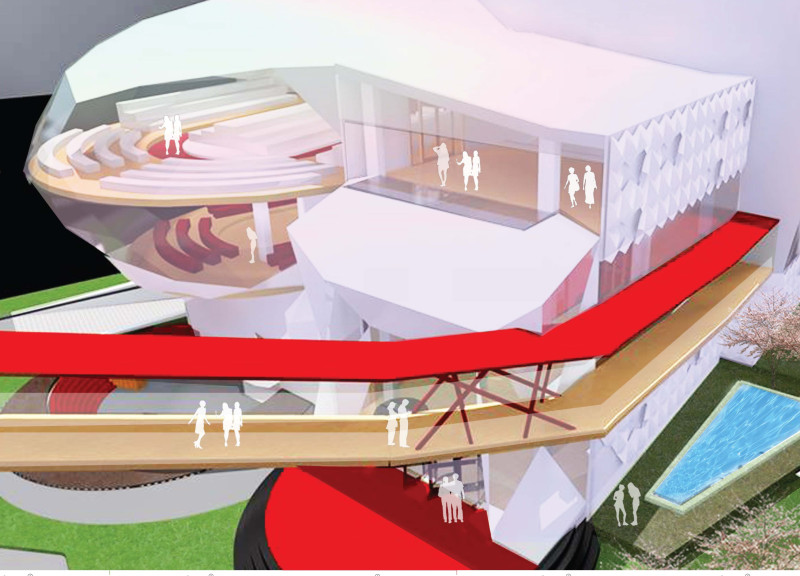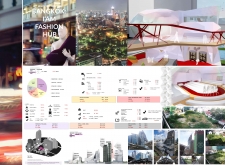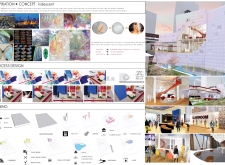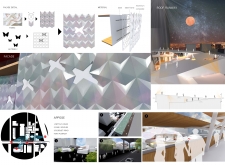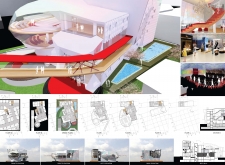5 key facts about this project
## Project Overview
The Bangkok Fashion Hub is a proposed architectural development located in the urban center of Bangkok, Thailand, intended to serve as a cultural and commercial space focused on the fashion industry. The design seeks to integrate elements of luxury and creativity while paying homage to the city's rich heritage. It aims to foster innovation within fashion and design, providing a platform for emerging designers and professionals in the field.
## Spatial Strategy
The project features a carefully planned spatial arrangement that delineates areas for various functions, promoting interaction and collaboration. Dedicated educational spaces will include classrooms, a library, and design studios tailored for aspiring fashion designers. Retail zones, comprising fashion boutiques and beauty salons, will cater to both local shoppers and visitors. Additionally, the inclusion of exhibition spaces will allow for the showcasing of designer work and host community events, reinforcing the hub’s role as a focal point for creativity and engagement.
## Materiality and Unique Features
Material choices within the design reflect both aesthetic and functional priorities. The use of steel provides structural support while enabling innovative architectural forms. Aluminum composite panels featuring iridescent effects will enhance the façade, alongside fabric elements that resonate with the fashion industry and provide dynamic visual interest.
Key features include an angular façade that captures and reflects light, creating a dynamic appearance throughout the day and contributing to sustainability through thermal control. The roof showcases a dual-purpose runway—serving both as a stage for fashion shows and an observation deck with expansive views of the city, connecting the building to its urban context and encouraging community participation. The interior is designed for versatility, featuring adaptable spaces that cater to a range of events and classes, embodying the theme of transformation intrinsic to both fashion and design.


